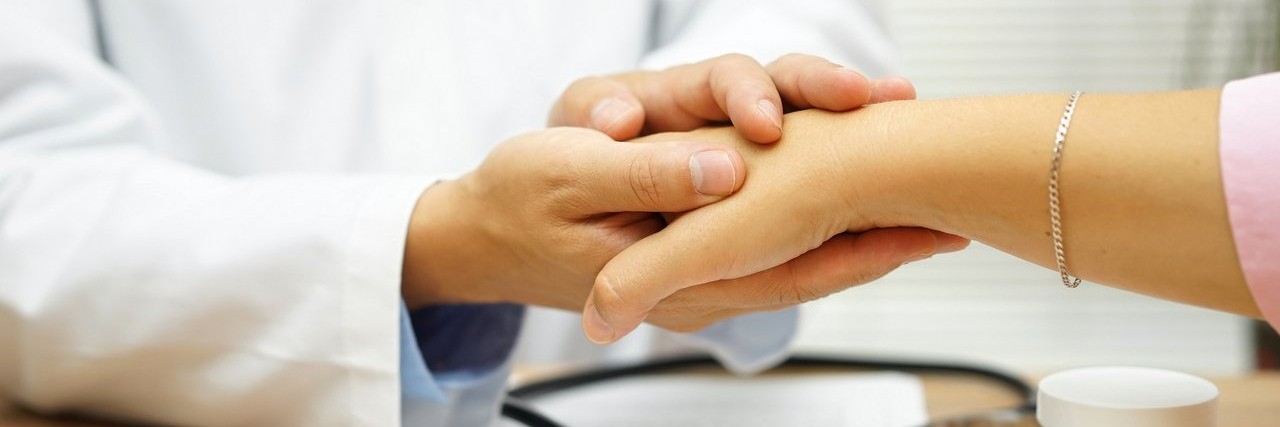Thank You to My Doctors for Acknowledging Your Limitations
I have many people who have supported me as I’ve learned to adjust to life with chronic illness — family, friends and health professionals. I’ve seen multiple doctors in my life, and three have stood out for me — one from each of the cities I’ve lived in since I left high school. Their nonstop encouragement, compassion and validation helped me survive a series of unfortunate events.
Dear Dr. Sydney, Dr. Lismore and Dr. Brisbane,
Thank you for validating me when I felt stuck in a revolving office door. There were periods when I saw you monthly, biweekly and weekly, and you never made me feel guilty for taking up your time. You probably have no idea the impact you’ve had on my journey through chronic illness, but these are a few things I’d like to thank you for.
Thank you for acknowledging your limits as a doctor and referring me to health professionals who had more training and expertise. You were never offended when I sought other opinions, and your humility meant I was able to get accurate diagnoses and try new treatments. You showed me an effective support network had many people and was multidisciplinary. Dr. Sydney, I was stunned when you wrote a thank-you letter to my naturopath for her insight and test requests that led to my polycystic ovary syndrome (PCOS) diagnosis.
Thank you for listening to me. I may have left your office feeling hopeless (due to the nature of my chronic illness) and in tears many times, but I never left feeling unheard, ignored, uncared for or let down.
Thank you for respecting my dignity as an adult who can make her own decisions. Thank you for not pushing me to attempt risky treatments I wasn’t prepared to try and acknowledging the research I had done on my own. Many times, I came into your office not as “Ailment Alex,” but as “Advocate Alex,” requesting a specific referral, treatment or test. Sometimes I was way off, but your encouragement empowered me to continue as an advocate and to keep opening new doors.
Thank you for being my friend. You were often the person I spent the most time with (other than my family), and because you were holistic in your approach, you treated me like a person, not a patient.
Thank you for being practical. You understood my personal restraints — particularly transport restrictions and financial hardships — and when possible, helped me find the cheapest and most convenient option. Your efforts meant I could try different treatments and see new specialists who were often helpful.
Thank you for letting me cry and empathizing with my pain, sorrow, grief, despair and the unfairness of my situation. I appreciate every time you agreed that my situation was unfair, saw me as a whole person, told me I didn’t deserve this and apologized when you had run out of tissues.
Finally, each of you said something to me that has stuck with me.
Dr. Sydney, when you acknowledged we shared the same faith and asked to pray for me, then and there, you reminded me that although I felt isolated and hopeless, I wasn’t alone, and there was hope.
Dr. Lismore, when I came to you because my suicidal ideations had returned, you said, “I won’t give up until we get you better.” You showed me I wasn’t alone, and there was hope.
Dr. Brisbane, when I shared my insecurities that I felt like a hypochondriac because of a string of infections, you told me to “never apologize for looking after yourself. You know your body. If something feels off, never hesitate to see me.” You, again, reminded me that I wasn’t alone, and there was hope.
So, to these wonderful doctors, thank you for acknowledging your limitations as a human while giving me the dignity and respect I deserve. Thank you for using your role to bring hope and healing to a patient who needed it as they learned to understand and manage their chronic illnesses.
With Many Thanks,
Your Patient
Follow this journey on Breaking Stigma.
If you or someone you know needs help, visit our suicide prevention resources page.
If you need support right now, call the Suicide Prevention Lifeline at 1-800-273-8255.
Lead photo source: Thinkstock Images

